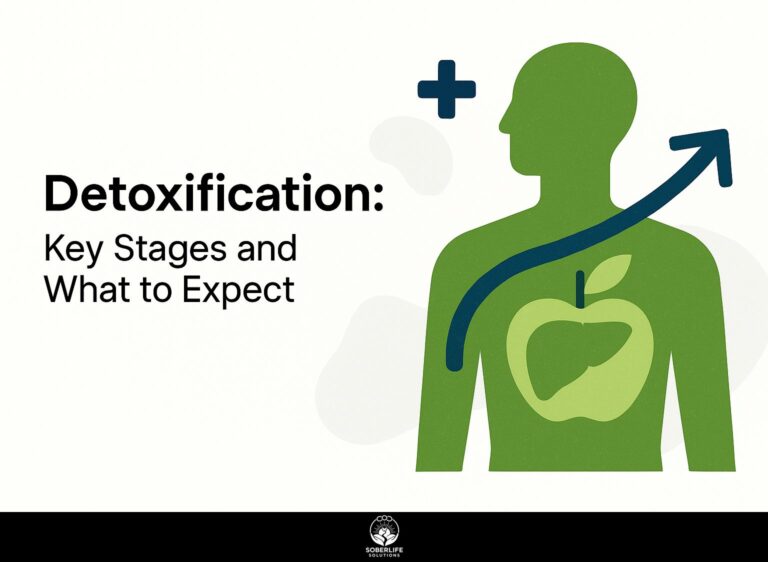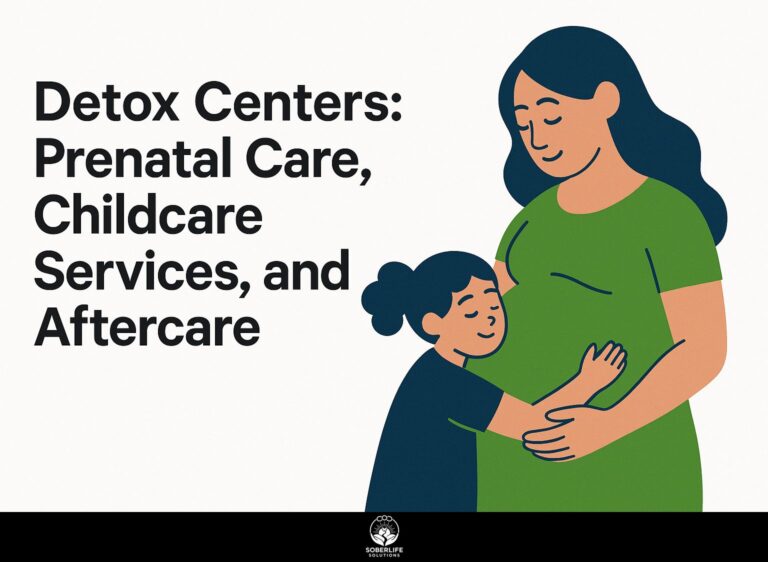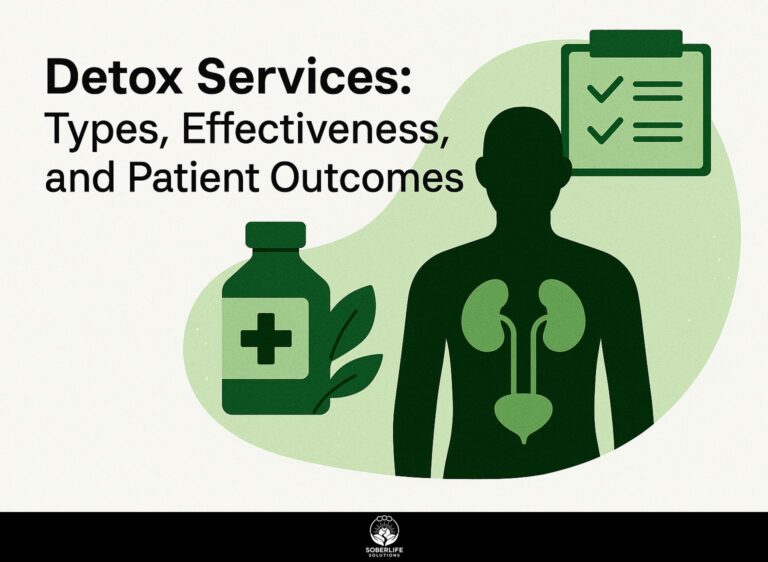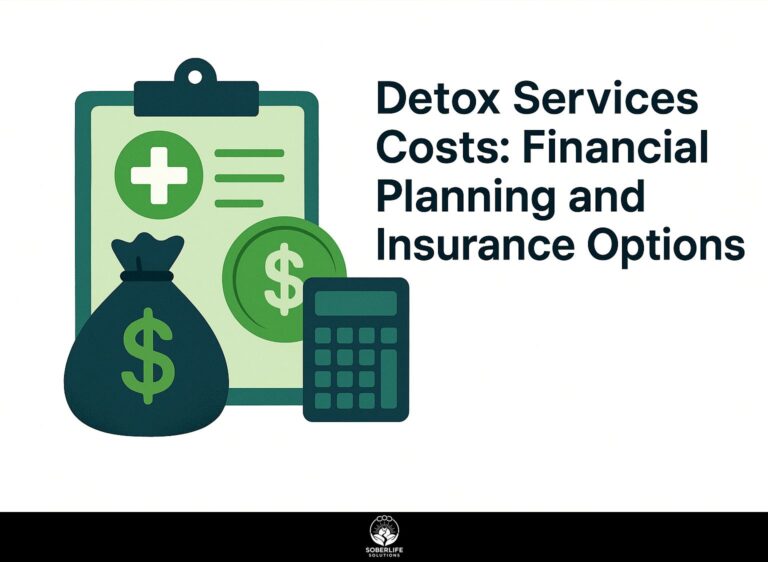How to Evaluate Rehab and Detox Centers: Key Criteria and Red Flags
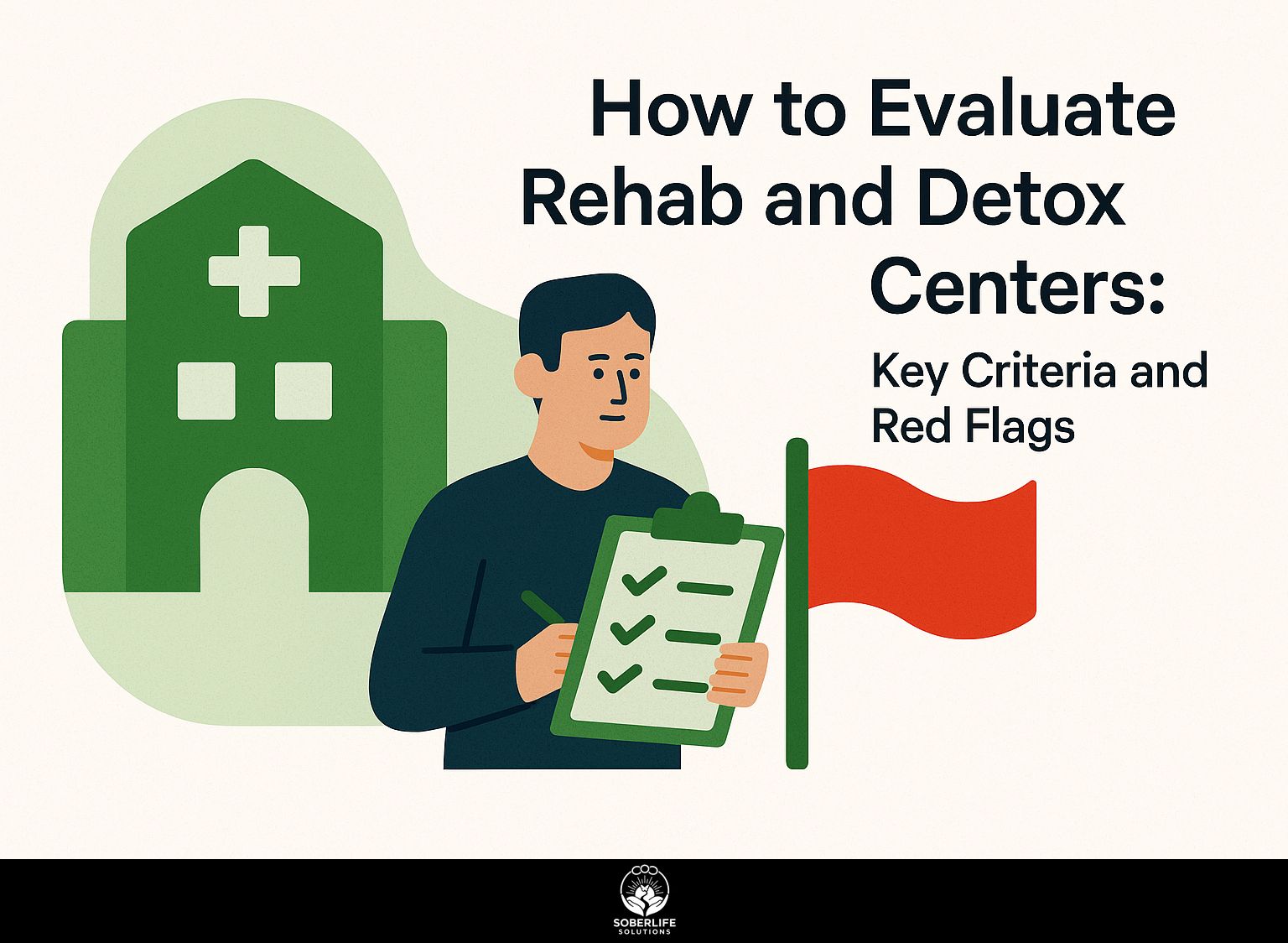
Picking the right rehab center is important for anyone dealing with substance abuse, as it can greatly affect recovery results. Experts like Marvin Ventrell, Margaret A. E. Jarvis, and Paul H. Earley emphasize the importance of evaluating both residential care and outpatient centers carefully. This article will guide you through key criteria and red flags to consider, ensuring you find effective addiction treatment that meets your unique needs.
Key Takeaways:
Key Criteria for Evaluation
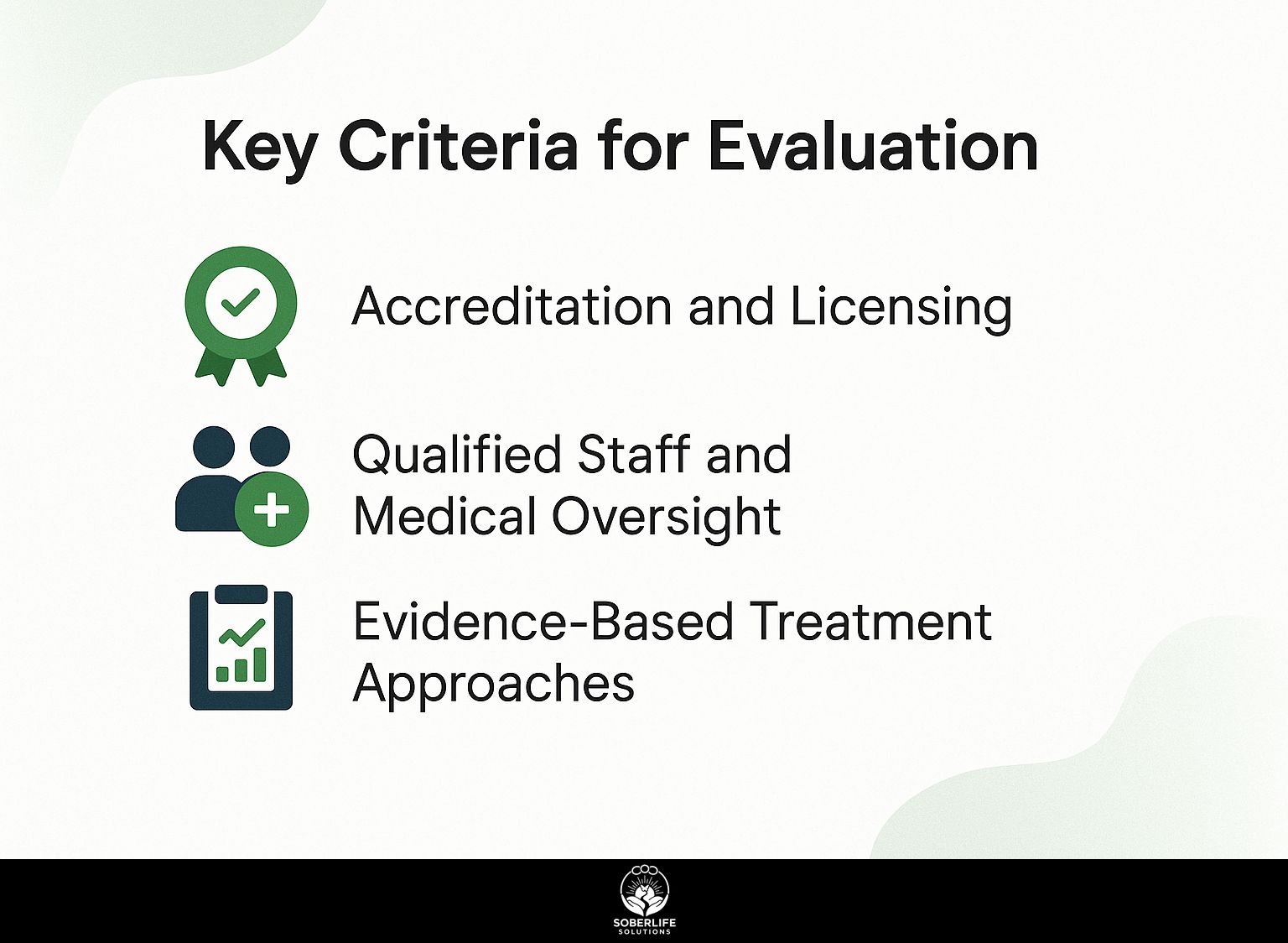
When looking at rehab and detox centers, it’s important to consider a few main factors to make sure people get good, ethical, and helpful care. To navigate these considerations effectively, our key guide on choosing alcohol treatment offers valuable insights into the critical aspects that ensure effective and ethical service.
Accreditation and Licensing
Ensuring a rehab center is accredited by organizations such as the NAATP or CARF can significantly impact the quality of care received.
Accreditation serves as a quality assurance indicator, ensuring the center meets specific standards. To verify accreditation, visit the accrediting body’s website, where you can check accredited facilities.
Check for well-known organizations like the Joint Commission that make sure a place follows strict health and safety rules. For example, the Hazelden Betty Ford Foundation, accredited by both CARF and the Joint Commission, provides effective therapeutic programs. This aligns with findings from the CDC, which highlights the benefits and impacts of accreditation in enhancing care quality.
Opting for accredited centers often means better-trained staff and more effective treatment programs, enhancing the likelihood of successful recovery.
Qualified Staff and Medical Oversight
A team of knowledgeable addiction specialists and doctors is crucial for providing personalized and thorough treatment plans.
These teams typically include licensed therapists, social workers, and medical doctors who collaborate to create effective care strategies.
For instance, research shows that patients receiving treatment from certified professionals experience a 50% higher rate of sustained recovery compared to those who don’t. As highlighted in a study featured on ScienceDirect, the involvement of qualified medical personnel can significantly enhance recovery outcomes.
A doctor oversees how medicines are taken to make sure they are used properly and safely, which impacts healing.
By combining different specializations-like behavioral therapy and treatment with medication-facilities can improve results and help patients better during their recovery process.
Evidence-Based Treatment Approaches
Implementing evidence-based treatment approaches, such as Cognitive Behavioral Therapy and motivational interviewing, is key to effective recovery.
These methods are grounded in research and have shown significant success in various contexts.
For instance, Cognitive Behavioral Therapy (CBT) often yields positive results in treating depression and anxiety by helping individuals identify and challenge negative thought patterns. Motivational interviewing, on the other hand, is particularly effective in substance use disorder settings, where it promotes behavior change by enhancing intrinsic motivation.
Programs like the Substance Abuse and Mental Health Services Administration (SAMHSA) provide resources and guidelines for integrating these techniques into treatment plans. As mentioned, methods like motivational interviewing align with the goals of SMART Recovery’s principles to encourage positive behavioral changes. For more detailed information, consider exploring SAMHSA’s Evidence-Based Practices Resource Center for comprehensive resources.
Facility Environment
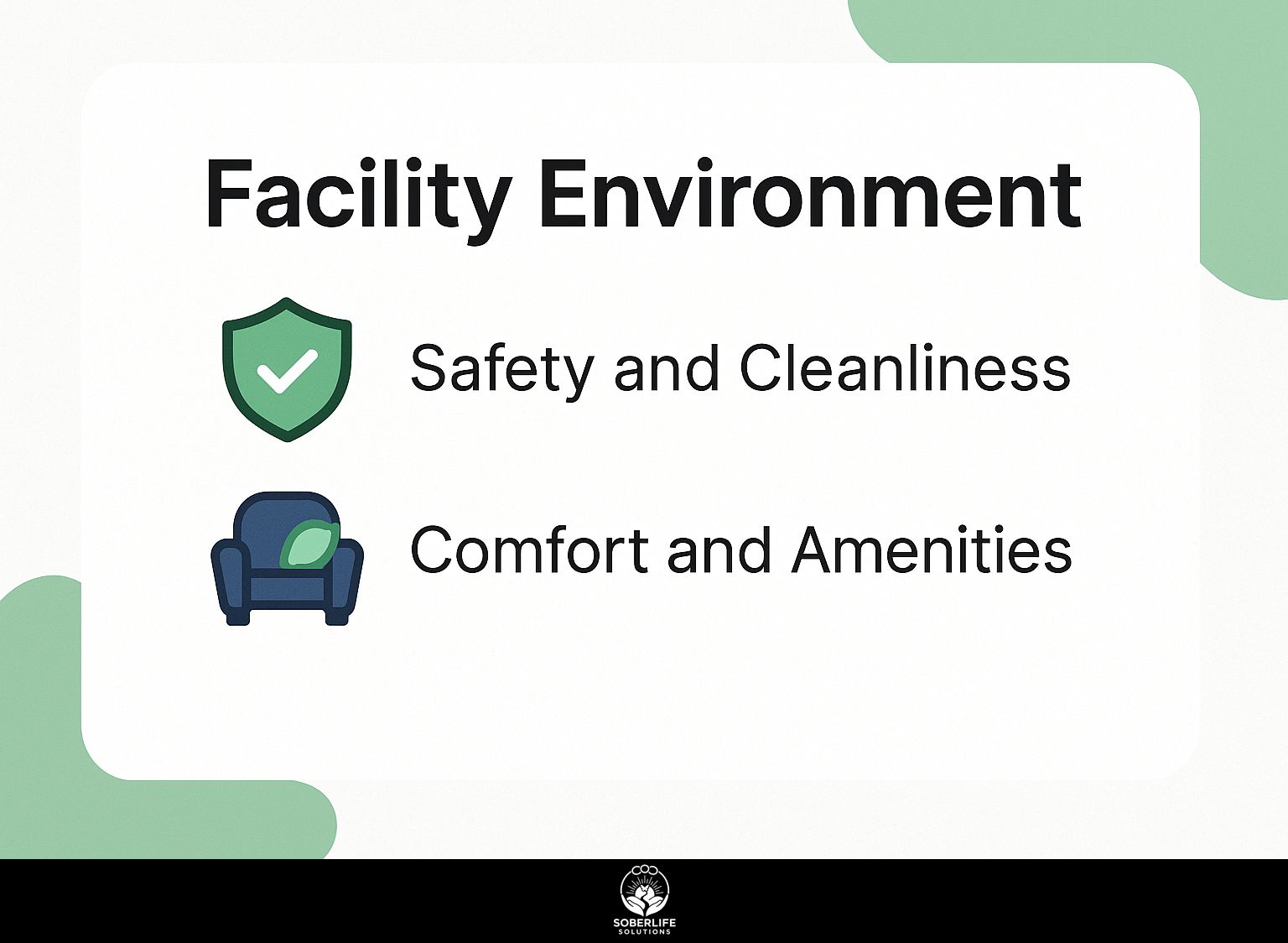
The surroundings of a rehab center greatly affect how relaxed patients feel and the success of their treatment, so it’s an important aspect to think about. For those interested in the connection between environment and lifestyle habits, our insights on how clean living helps recovery offer valuable perspectives.
Safety and Cleanliness
A safe and clean environment is non-negotiable in any rehabilitation center, directly affecting patient health and recovery outcomes.
Certain rules should be applied in rehab centers to create the best environment.
For instance, frequent disinfection of high-touch surfaces can reduce infection rates by up to 80%. Good ventilation makes the air cleaner and reduces the spread of airborne diseases.
Regular health screenings for staff and patients are essential; studies show that centers implementing these protocols experience 30% higher recovery rates.
A structured daily cleaning plan greatly improves the cleanliness of the area and supports the mental health of those in recovery.
Comfort and Amenities
Having cozy facilities and easy access to services can make the rehabilitation process much smoother and less scary for patients.
Amenities are important for building a helpful environment during rehabilitation. For example, private rooms provide privacy and help calm nerves, while shared areas encourage people to interact, building a community feeling for patients.
Recreational activities like yoga or art therapy help distract and support emotional healing. Healthy meal choices are important because they help with physical health and healing.
When picking a rehab center, focus on those that highlight these features, as they play an important role in a successful recovery process.
Program Structure and Flexibility
Having flexible treatment plans is important for addressing individual needs and supporting good outcomes.
Personalized treatment plans should include a thorough assessment of the client’s unique circumstances, preferences, and goals.
Programs like Cognitive Behavioral Therapy (CBT) can be adjusted to address particular problems such as anxiety or depression, which allows for focused treatments. For those interested in selecting a suitable alcohol treatment program, considering key elements is essential. Our guide on choosing alcohol treatment provides insights into these crucial considerations.
Offering various scheduling options-such as evening or weekend sessions-can help increase attendance. A quality program could include individual counseling and group sessions, so that people benefit from both personal guidance and encouragement from peers.
The key is to keep a flexible method that changes as clients move forward.
Cost and Insurance Options
Knowing the costs of rehab and the insurance choices can help families find the right treatment for their loved ones.
Rehab costs typically range from $5,000 to $60,000, depending on the program type and duration. Inpatient facilities generally cost more than outpatient ones.
Insurance plans can differ. Many cover some of the costs, so check with your provider to understand your benefits.
Check resources like the Substance Abuse and Mental Health Services Administration (SAMHSA) for help with funding options. They have a phone line to help you locate state services and learn about additional support available in your area.
Red Flags to Watch For
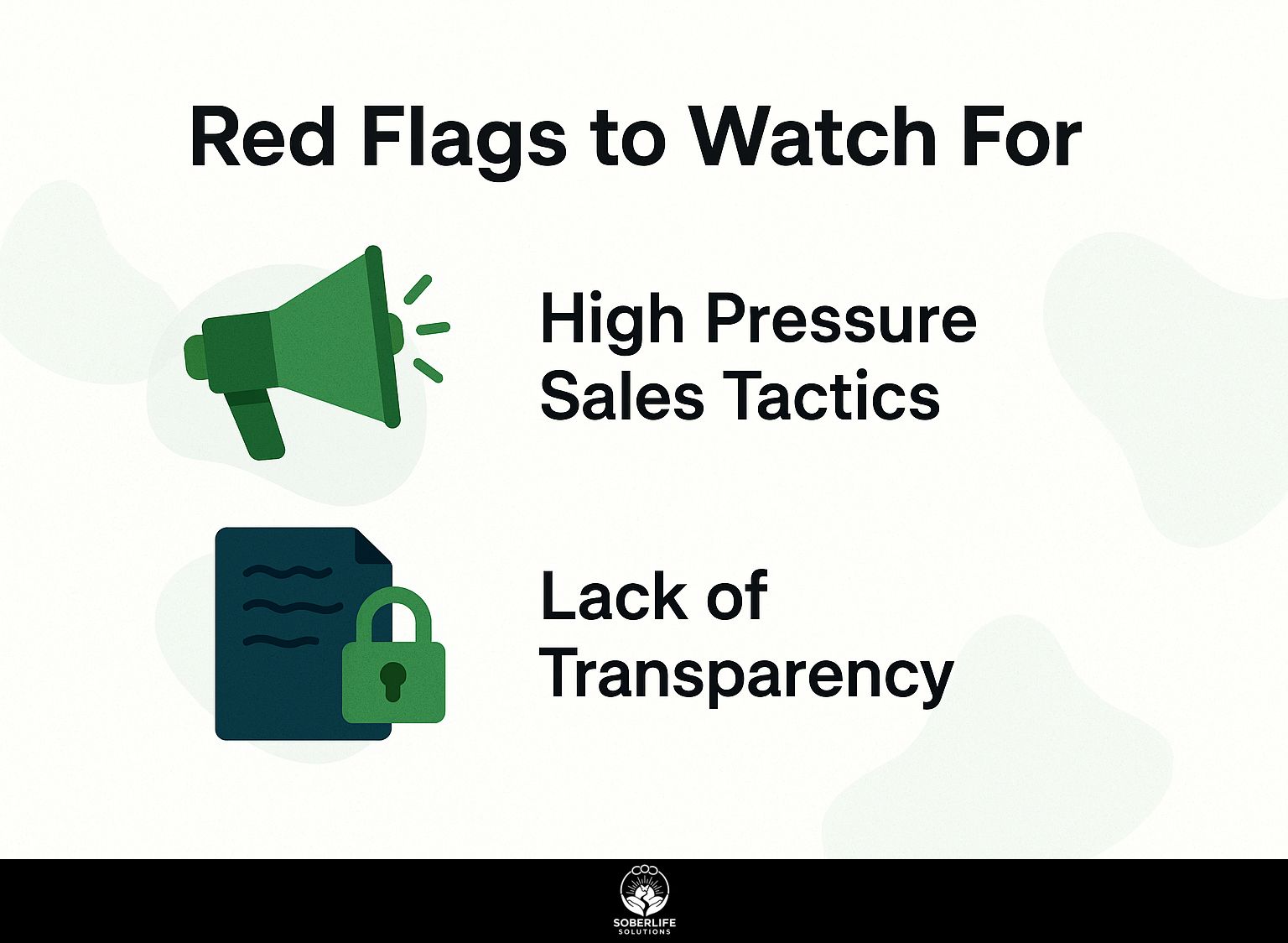
Recognizing warning signs in rehab centers can help avoid poor treatment and make sure people receive the best care.
High Pressure Sales Tactics
Beware of rehab centers that employ high-pressure sales tactics, as they often prioritize profit over patient care.
Common tactics include aggressively pushing for immediate enrollment, using fear-based messaging to highlight the dangers of substance use, or offering limited-time discounts. These strategies can signal a lack of genuine concern for your wellbeing.
If you face these tactics, it’s important to pause and reassess. Ask for time to consider your options, consult with trusted friends or family, and research the facility thoroughly. Legitimate centers will respect your need for space and provide transparent information rather than pressuring you into a decision.
Lack of Transparency
A lack of transparency regarding treatment practices and costs can signal potential issues with a rehabilitation center.
To gauge a center’s transparency, consider these actionable steps:
- First, request a detailed breakdown of their treatment protocols, including methodologies and success rates.
- Next, inquire about all associated costs upfront, such as assessment fees and potential additional charges for services.
- Evaluate their communication style; centers that encourage questions and provide thorough explanations demonstrate openness.
- Read online reviews to see if past clients mention clarity in treatment and financial discussions.
By doing this evaluation, you can more effectively select a reliable rehabilitation center.
Frequently Asked Questions
What is the importance of evaluating rehab and detox centers?
Looking at rehab and detox centers helps people choose the right treatment and make sure they get the best care for their recovery.
What are some key criteria to look for when evaluating rehab and detox centers?
Some key criteria to consider include accreditation, staff qualifications and experience, treatment approaches and methods, amenities and facilities, and aftercare services.
How can accreditation be used as a key criteria for evaluating rehab and detox centers?
Accreditation from reputable organizations such as The Joint Commission and the Commission on Accreditation of Rehabilitation Facilities (CARF) indicates that a rehab and detox center meets high standards of care and safety.
What are some red flags to watch out for when evaluating rehab and detox centers?
Red flags may include lack of accreditation, poor reviews or complaints from previous clients, unqualified staff, inadequate amenities or facilities, and limited or questionable treatment approaches.
How important is the staff’s qualifications and experience when evaluating rehab and detox centers?
The staff’s qualifications and experience are very important for a successful recovery process. Check that the staff has the necessary qualifications and experience in handling the substance or addiction you need assistance with.
What role does aftercare services play in evaluating rehab and detox centers?
Aftercare services, such as support groups and follow-up therapy, are essential for long-term success in recovery. Make sure the rehab and detox center offers detailed aftercare plans to support you after treatment.



